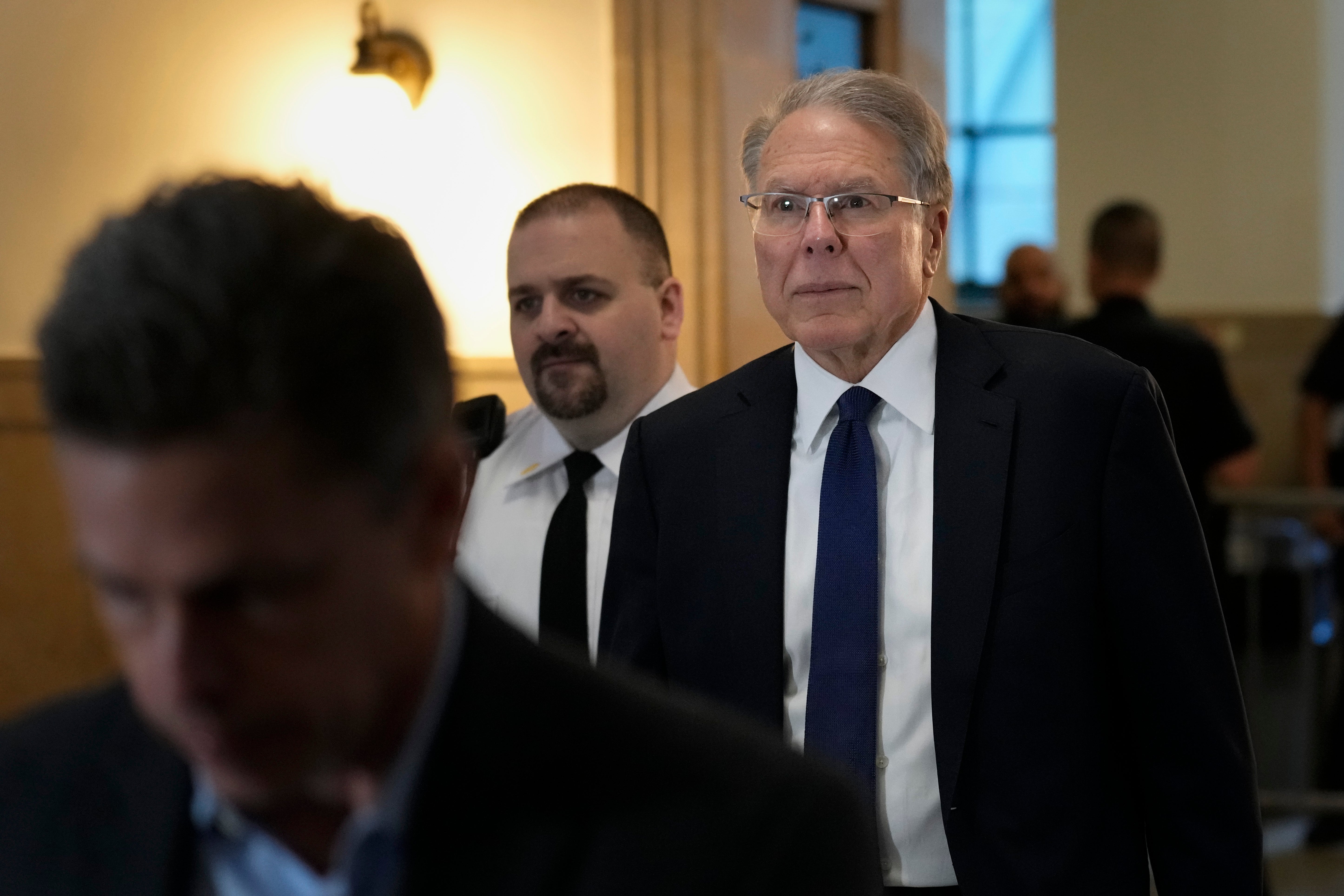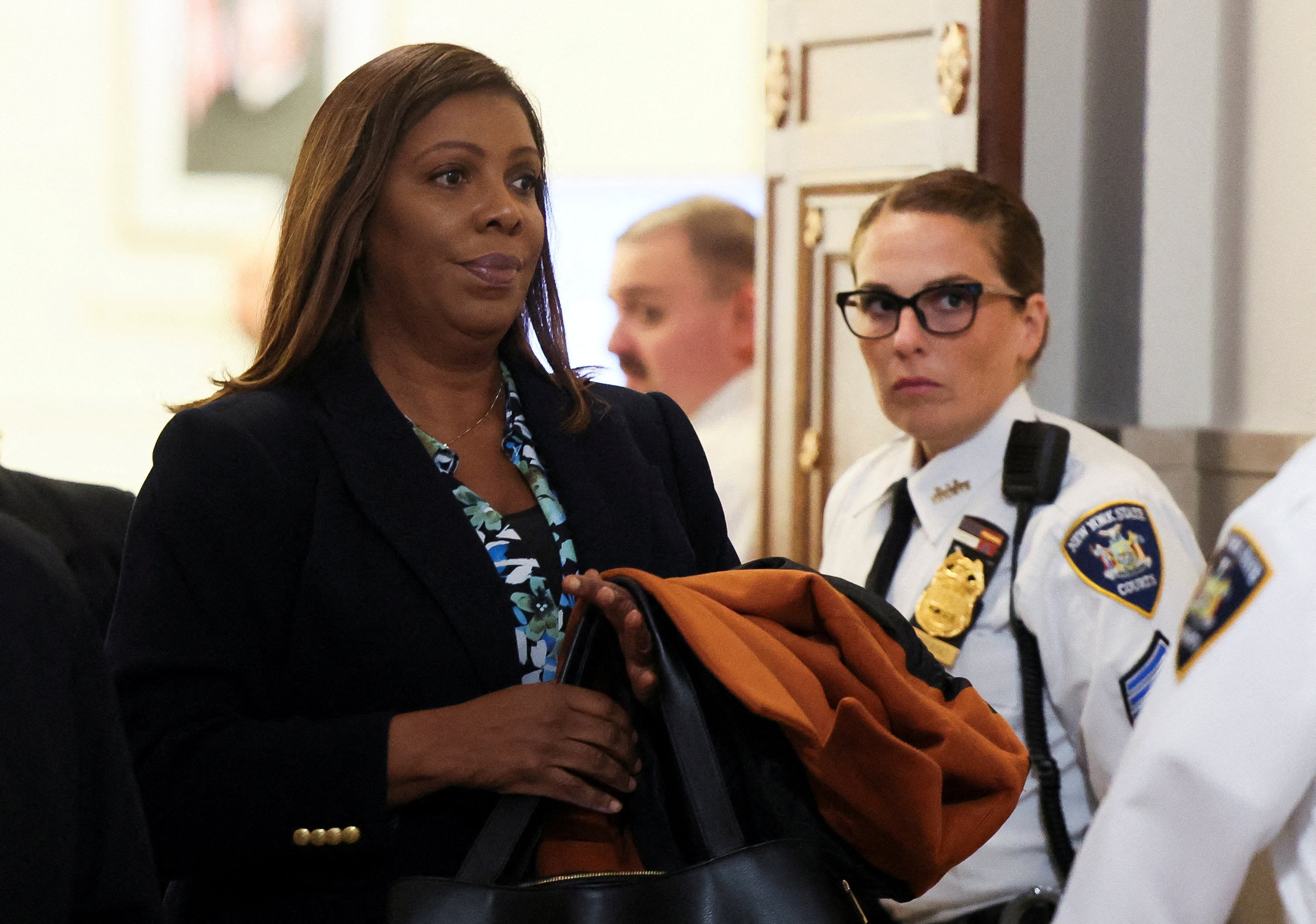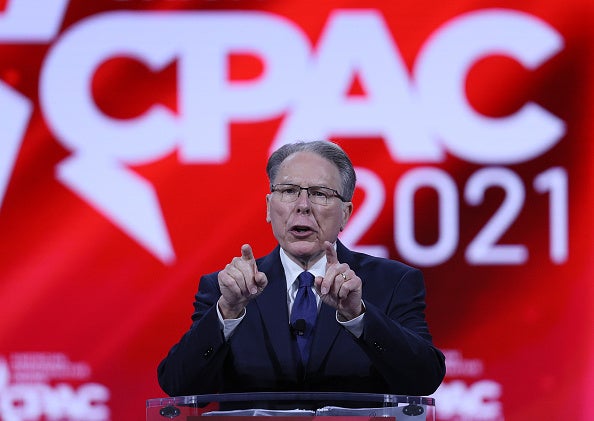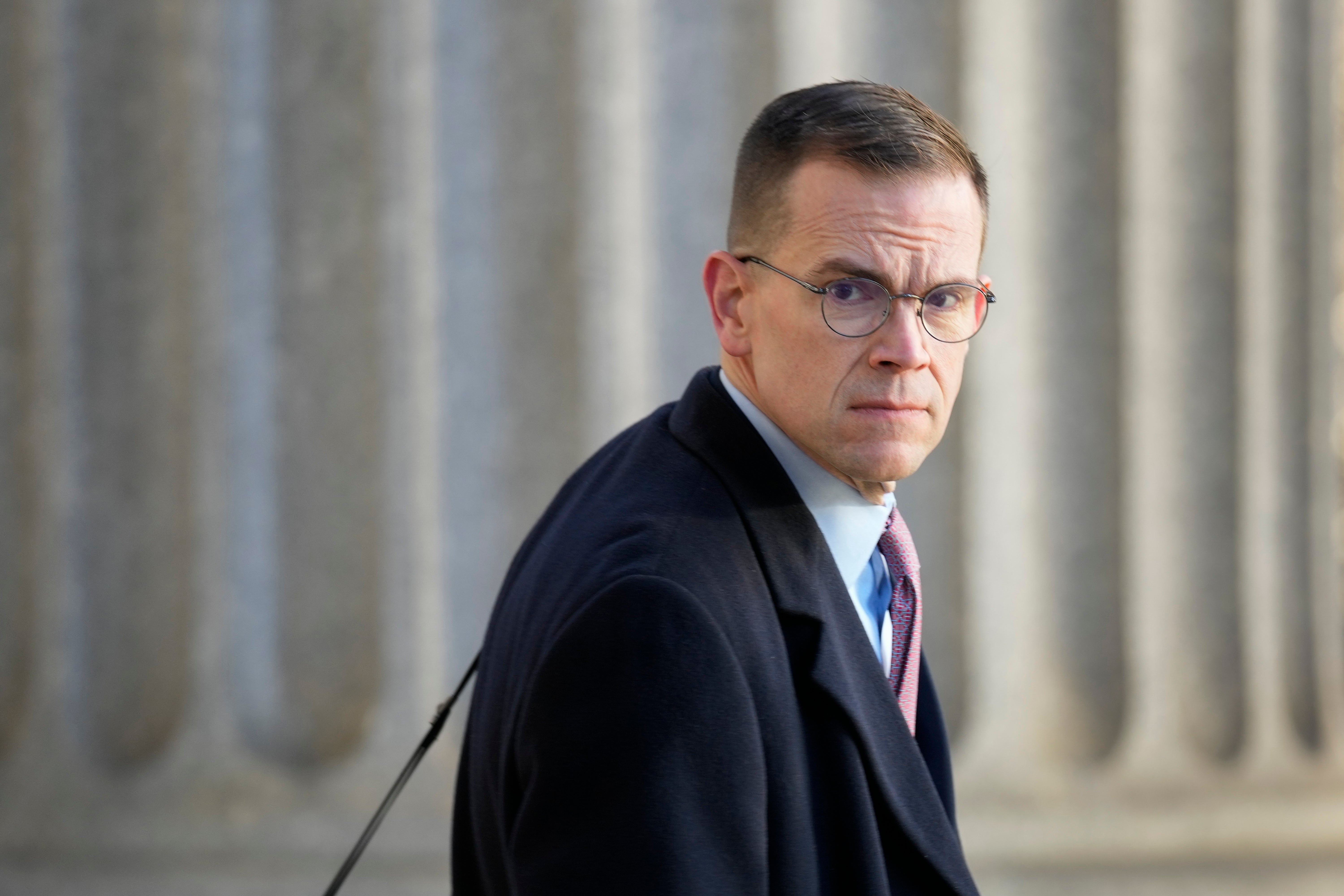‘Wayne’s World’: Trial against longtime head of NRA Wayne LaPierre begins in New York
Former head of the National Rifle Association is part of a trial in a New York Superior Court for the next six weeks
Your support helps us to tell the story
From reproductive rights to climate change to Big Tech, The Independent is on the ground when the story is developing. Whether it's investigating the financials of Elon Musk's pro-Trump PAC or producing our latest documentary, 'The A Word', which shines a light on the American women fighting for reproductive rights, we know how important it is to parse out the facts from the messaging.
At such a critical moment in US history, we need reporters on the ground. Your donation allows us to keep sending journalists to speak to both sides of the story.
The Independent is trusted by Americans across the entire political spectrum. And unlike many other quality news outlets, we choose not to lock Americans out of our reporting and analysis with paywalls. We believe quality journalism should be available to everyone, paid for by those who can afford it.
Your support makes all the difference.Eleven years ago, Wayne LaPierre, the CEO of the National Rifle Association (NRA), delivered a speech elevating the gun advocacy nonprofit after 20 elementary school children were shot and killed in Newtown, Connecticut.
That day, Mr LaPierre stood on a stage in a sophisticated dark suit and did what his lawyer said he believed one of his duties was as the executive vice president: talk to people to enlist their support for the NRA.
“The only thing that stops a bad guy with a gun is a good guy with a gun,” Mr LaPierre said.
His words shocked those in mourning but resonated with gun rights advocates, just as they had over the two decades that Mr LaPierrebecame the face of the organisation.
But Monday afternoon, the recently resigned Mr LaPierre sat in a plain blue suit adjacent to a twelve-person jury in a New York courtroom, awaiting opening arguments in New York Attorney General Letitia James’s trial against him and two other former or current NRA executives.
This time, Mr LaPierre just listened as Sarah Rogers, a lawyer representing the gun advocacy group, argued, “The NRA is not Wayne LaPierre.”

The position and power Mr LaPierre held for 32 years are under the microscope in the case of alleged corruption – brought by Ms James in 2020.
The New York attorney general alleges that for years, Mr LaPierre “routinely abused his authority” to conceal payments or reimbursements from the organisation for luxury trips taken on private jets, yachts or black-car service, expensive gifts for friends, employees or vendors, private security, lavish meals and more.
Ms James alleges that Mr LaPierre maintained power by retaining employees regardless of experience or skills that he believed would aid him in controlling the organisation – this includes his current co-defendants, former CFO Wilson “Woody” Phillips and general counsel John Frazer.
It also included a former defendant, former chief of staff Joshua Powell, who reached a settlement agreement with the AG last week.
Ms James said in her complaint.
In total, the allegations paint Mr LaPierre as an autocratic executive who kept a leash around those in high-up positions in order to get what he wanted – something Monica Connell, an assistant attorney general, summed up by calling Mr LaPierre “the king of the NRA”
“The NRA allowed Wayne LaPierre … to operate the NRA as ‘Wayne’s World’ for decades,” Ms Connell said during opening arguments on Monday.

For years, stories about power struggles between former executives and Mr LaPierre have circulated the news cycles. Infighting between NRA leaders in 2019 revealed there was an alleged coup to try and oust Mr LaPierre.
But when members of the NRA were asked whether or not they were confident in Mr LaPierre’s leadership, they “overwhelmingly” voted ‘yes’.
Mr LaPierre, who is largely credited with amplifying the pro-gun movement in the US, had spent a great deal of his time at the NRA helping diffuse tension between mass shootings and firearms.
Aside from his comments about the Sandy Hook Elementary School shooting in 2012, he also pointed the finger at a 2017 Las Vegas shooter’s access to bump stocks and accused Democrats of exploiting the Parkland school shooting for political gain.
Undoubtedly, Mr LaPierre’s commitment to the NRA helped elevate its status to what it’s as known today.
But the organisation has also faced some blows over the last few years – membership dropped from nearly six million in 2018 to under five million in 2021. Between 2020 and 2021 the organisation’s revenue also faced a dip of more than $50m.
Then, amid a chaotic number of controversies, Ms James made a promise during her campaign for attorney general that she would investigate charities, including the NRA, for financial improprieties.

Mr LaPierre’s attorney, Kent Correll told jurors on Tuesday that Mr LaPierre served his role at the NRA “well”, “honorably” and “honestly”.
He argued that Mr LaPierre’s trips on yachts and private jets were necessary for networking to help the NRA meet its goal of advocating for the Second Amendment while maintaining Mr LaPierre’s safety.
As CEO and executive vice president, Mr LaPierre saw his duties as going out and meeting people to understand different viewpoints on guns and gun policy – including the president of the United States.
“He saw his duty as broader than sitting in an office, in a headquarters, reviewing contracts and invoices,” Mr Correll said. “He travelled a lot because he viewed his duty as being with people.”
That travel included the occasional yacht trip which Mr Correll said he too would embark on if invited. Additionally, Mr Correll blamed an advertising agency for forcing Mr LaPierre to purchase expensive clothing – on the company’s dime – to maintain a certain image.

The NRA maintains that Mr LaPierre repaid the money he owed “with interest”.
Ms Rogers, an attorney at Brewer, Attorneys & Counsel representing the NRA, clearly distanced the organisation from the former CEO and executive vice president, painting the gun advocacy organisation as a victim of executives’ wrongdoings while also keeping Mr LaPierre in good light.
“The truth you will learn about Mr LaPierre during this trial is that he has been a valuable and visionary leader, of this association and of gun rights,” Ms Rogers said.
She added that Mr LaPierre was “not always a meticulous executive.”
Over the next six weeks, the jury will hear testimony to determine whether or not the NRA, Mr LaPierre, Mr Wilson and Mr Frazer are liable for breaking state not-for-profit laws and what money, if any, they owed back to the NRA.
Initially, Ms James had sought to dissolve the NRA and remove Mr LaPierre from his role. But the judge overseeing the case dismissed the dissolvement and Mr LaPierre resigned from his position on Friday – citing health reasons.

Join our commenting forum
Join thought-provoking conversations, follow other Independent readers and see their replies
Comments